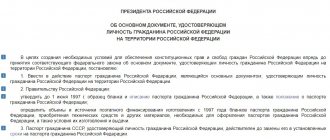Sale of alcohol in Russia
Since how old have they been selling alcohol in Russia? The sale of alcoholic products is regulated by the current Law 171 “State regulation of the production and sale of ethanol and alcohol-containing alcoholic products.” According to this document, it is allowed to sell alcohol to persons who have reached the age of majority, i.e. from the age of 18.
Law No. 171 prohibits the sale of alcoholic beverages to those under 18 years of age, including non-alcoholic beer. In fact, in Moscow you can meet a child under eighteen drinking not only non-alcoholic beer, but also strong drinks. If we consider the statistics of Russia, we can note the fact that the number of alcohol-containing drinks among children aged 11-15 years has increased significantly. Every year, 15 thousand violations are detected in Moscow alone. The Health Committee, together with leading narcologists, is working to reduce the level of alcoholism among adolescents. To reduce the sale of alcohol to children in the Russian Federation, measures such as:
- supplement existing and develop new legislative documents;
- conduct unscheduled inspections of retail outlets on an ongoing basis;
- carry out all kinds of promotions and advertising campaigns;
- conduct conversations in educational institutions.
It is worth noting that there is a hotline that receives complaints regarding violations and the sale of drinks. But if you were not sold alcohol even if you had a passport, you can challenge this situation by pointing out to the outlet at Article 426, 3 paragraphs of the Civil Code of the Russian Federation. This article includes an explanation, namely, if the necessary goods are available for the buyer, the seller does not have the right to refuse him.
Recently, the State Duma introduced amendments to the Legislative Act, which provide for an increase in the age from 18 to 21 years, as well as an increase in fines for violating the Code of Administrative Offenses.
At what age is the sale of alcohol allowed?
Childhood alcoholism is a national problem!
Young citizens are increasingly interested in the possibility of purchasing alcoholic beverages in retail chains, grocery stores, stalls, etc. The age of the citizen purchasing alcoholic beverages becomes a real stumbling block in this matter.
In Russia, alcohol is sold to citizens upon reaching the age of majority, i.e., when they turn 18 years old. Minor citizens always want to somehow have a nice time on vacation, so their interest in alcohol is constantly increasing.
The problem is not solved by the fact that people constantly discuss it on television, radio and other media. The more publicity given to this social phenomenon, the more the problem escalates. Empty chatter does not contribute to solving the problem, but only complements the existing information state of society and, one might say, increases the harmful influence on young people. To solve the problem of childhood alcoholism, it is necessary to increasingly promote a healthy lifestyle in the media, and not escalate an already difficult situation.
In this way, people are given the opportunity to choose a different direction for themselves, which involves getting rid of bad habits. So we can say with confidence that, under a plausible pretext, the domestic media in fact only contribute to the deterioration of statistical data on the issue of teenage alcoholism. This is a scientifically proven fact.
How does the deal work?
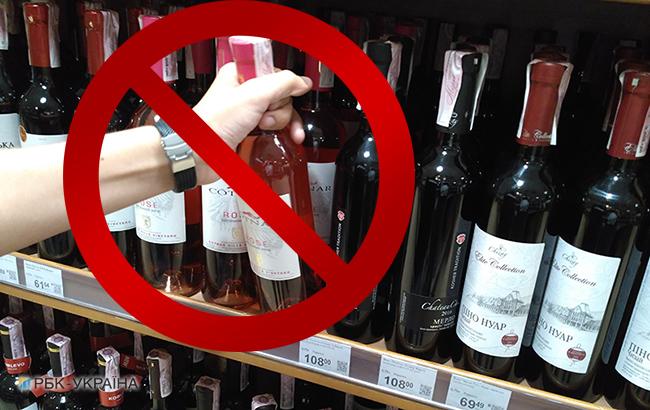
Action plan:
- a person goes to a store, a specialized organization engaged in the sale of alcohol;
- by law, the seller has the right to demand the provision of documents if the buyer’s age raises doubts;
- If there is no passport or other documents confirming the buyer’s age, the seller has the right to refuse to sell alcohol.
If you believe the statistics, 4% of schoolchildren did not drink alcohol. The remaining 96 percent of adolescents have used or continue to use alcohol.
What are the consequences of breaking the law?
Those who believe that teenagers can buy strong alcohol should familiarize themselves with the legislation of our country.
Such products include the following drinks containing ethyl:
- Wine and its derivatives, liqueurs.
- Vodka, cognac, tincture, beer, brandy.
Previously, it was believed that strong alcohol with an alcohol concentration of 40 percent was prohibited. But the government decided to limit sales of wine and beer. Which also lead to the development of addiction.
If drinks containing ethanol are sold to a teenager, the company faces:
- a fine of 30 to 50 thousand rubles;
- the management of a registered legal entity will pay a fine in the amount of 100 thousand rubles;
- fines will be imposed on the company; management will have to pay at least 300 thousand rubles.
The place of trade is also regulated by law; according to the regulations, it is prohibited to sell products:
- In children's, educational and medical institutions.
- In transport (regardless of the duration of travel).
- In health-improving establishments.
- In sports sections, gyms.
Alcohol is not sold in other children's establishments; trade is prohibited even if the organization does not have the appropriate documents (licenses).
If regulations are violated, the following institutions are responsible for order:
- law enforcement agencies (directly the police or prosecutor's office);
- complaints are transferred to Rospotrebnadzor, the organization has the right to impose a fine on the enterprise and hold managers administratively liable;
- If the case comes to court, then the ministers of Themis will sort out the circumstances of the current situation.
When the seller makes the wrong decision and sells prohibited products to a teenager. Then a specific person, organization, as well as the minor who made the purchase suffers from such a “misdemeanor.”
It is worth noting that the law also prohibits assistance in the sale of alcohol. If a person decides to purchase such products and then give them to a teenager, he will face a fine and arrest for forgery.
Where is the sale of alcohol prohibited?
The Federal Law on Alcohol Trafficking regulates the production, storage, and sale of wine and vodka products. It is quite clearly stated from what time and until what time alcohol is sold, as well as where sales are allowed and where they are prohibited. There are places where retail sale of alcohol is prohibited. These include:
- children's, medical, educational organizations (and surrounding areas);
- sports objects;
- military installations;
- markets;
- crowded places;
- sources of increased danger.
Regarding the territories adjacent to the objects, everything is not so clear. Much also depends on the norms of law adopted in individual regions of Russia. They are allowed to make their own adjustments regarding the maximum distance. The permissible deviation cannot exceed 30%.
The rules and hours for the sale of alcohol can be set by regions of Russia independently within the framework that does not contradict Federal Legislation.
The harm of alcohol for teenagers
The peculiarity of alcoholism in children and adolescents is its rapid development. A persistent dependence on alcohol in a young person who drinks alcohol two or three times a month develops within a year.
The harm of ethyl alcohol to a growing organism is enormous. It affects the liver, brain, gastrointestinal tract functions, endocrine, reproductive, and cardiovascular systems. The same happens to an adult body, but for a child, many of whose organs are still forming and growing, such an effect is many times more destructive.
The liver of a young person does not synthesize enough enzymes to process ethanol, so in adolescents, alcohol intoxication is more severe and causes more harm to health. The share of alcohol intoxication among all cases of poisoning in adolescents is 8%. The child has less body weight and needs less alcohol. Failure to control the amount of alcohol consumed leads to poisoning, which sometimes ends in death.
The nervous system and brain suffer. Under the influence of alcohol, neurons are destroyed, and abnormal chemical reactions occur in the brain centers. The death of cerebral cells leads to a decrease in cognitive functions of the brain
Teenagers who are addicted to drinking are less able to concentrate, remember new information, and their attention is scattered. There is a deterioration in intellectual abilities and moral degradation

Brain damage
Ethyl alcohol also negatively affects the condition of blood vessels. As a result, blood supply to the brain is reduced. This leads to a deterioration in the functioning of the body, since it is the brain that controls its functioning. Visual, hearing, and coordination disorders develop.
One of the measures of the state alcohol policy is to maintain alcohol prices at a high level. Therefore, teenagers drink cheap drinks, which, in addition to ethanol, which is already toxic to the body, contain fusel oils, harmful compounds to impart taste and smell. These substances harm the digestive system.
The sooner a child starts drinking alcohol, the more likely there are delays in mental and physical development and the formation of reproductive organs. There is a malfunction of the endocrine organs, which results in hormonal imbalance. The ability to perceive and remember new information deteriorates, and mental problems begin.
The entire growing organism suffers. Against the background of regular consumption of alcoholic beverages, the following diseases develop more often than others:
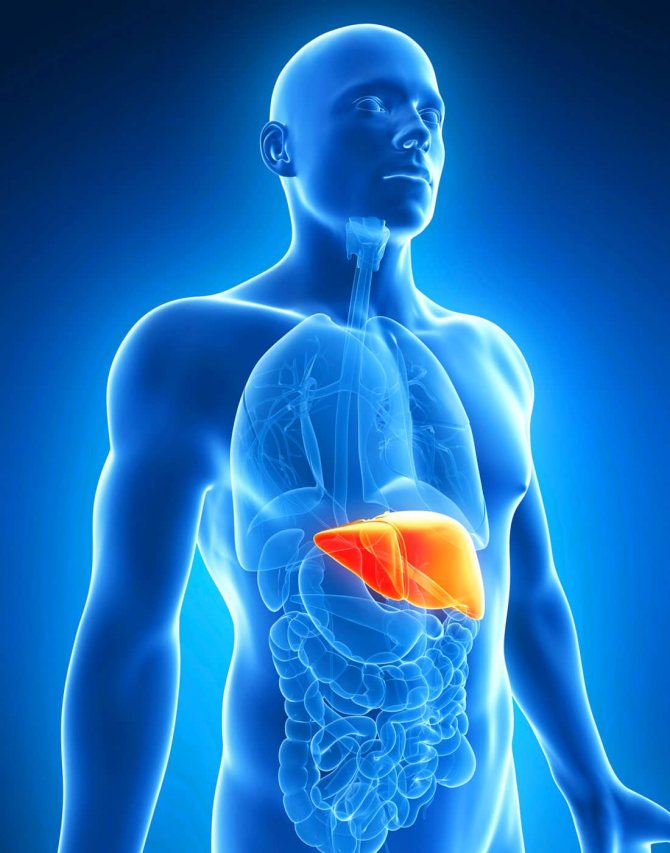
Hepatitis
- gastritis and peptic ulcer as a consequence of gastrointestinal damage;
- cystitis, pancreatitis, pyelonephritis, urethritis with a chronic course as a consequence of damage to the genitourinary system;
- arrhythmia, tachycardia, heart failure as a result of damage to the heart and blood vessels;
- hepatitis and hepatosis due to liver damage;
- frequent infectious diseases against the background of reduced immunity.
The likelihood of sexually transmitted diseases increases due to the early onset of sexual activity and lack of knowledge about contraception.
Reasons for restrictions on alcohol sales
It has long been proven that alcohol is harmful to human health and intellect. The famous physicist Lev Landau could not work for a month after one glass of champagne. Is it worth talking about the consequences for the majority of alcohol drinkers, because they definitely drink much more in a month.
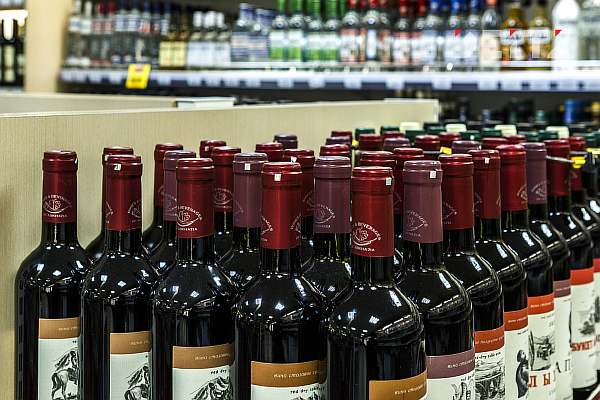
Alcohol-containing drinks
But there are other reasons for restrictions by law:
- safety of the urban environment;
- economic stability;
- the future of the country.
Since alcoholic drinks are essentially a drug, they take control of the psyche. And therefore, in such a state, a person sometimes gets behind the wheel, despite a clear instruction for himself not to do so. It is clear that if people cannot go to work, the economy of the entire country suffers. As well as her future, because children of alcohol addicts are often born sick.
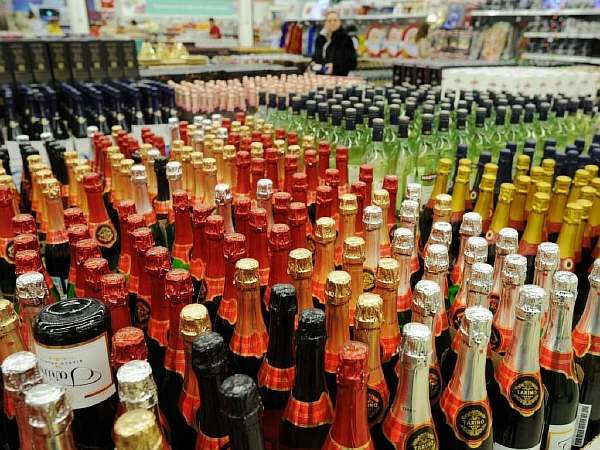
In the supermarket
Historical practice has shown that a complete ban on alcohol leads to the flourishing of illegal trade. And this, in turn, leads to the flourishing of crime. For example, according to some experts, almost all organized crime in the United States arose due to Prohibition.
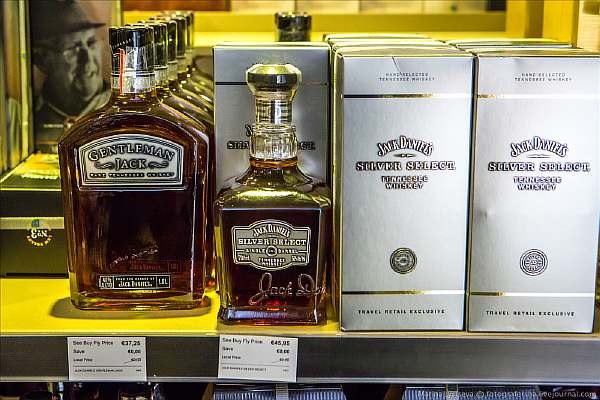
In Finland
Even if this is not the case, with a complete ban on alcohol, there is a high risk of worsening the crime situation. And this arises because there is still a demand for alcohol. Otherwise, without any ban, alcohol production would cease due to lack of sales.
There is another reason. Very doubtful. Some believe that citizens and residents of a country have the right to decide whether to drink alcohol or not. Perhaps, from the point of view of legal philosophy, this is so.
But if you use logic as a science, then everything is completely different. After all, alcohol is a drug, and most drugs are prohibited. There are also many people who are not averse to using these prohibited substances, but they are not listened to and the ban is not lifted.
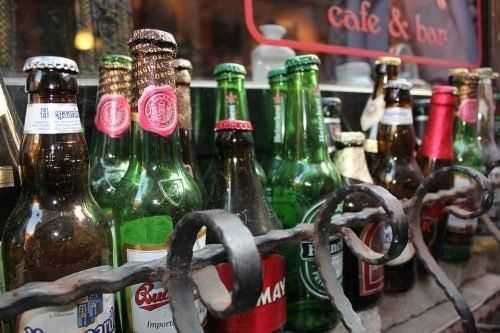
Near the cafe
Because any drug is a threat to society. A drug addict is often dangerous to others. And if this problem does not arise with smoking tobacco in designated areas, then the situation with alcohol is essentially no different from the situation with drugs.
After all, both take control of the psyche. And if we develop the philosophy of law, then there will be no less reasons for prohibiting alcohol by law than for allowing it.
The future development of alcohol restriction laws is currently unclear. After all, the emergence of certain bills or regulations in Russia and in the world as a whole in 2020 is influenced by a lot of factors. However, the current restrictions by law are unlikely to be abolished. Indeed, from the point of view of official medicine, the harm of alcohol to the population is obvious.
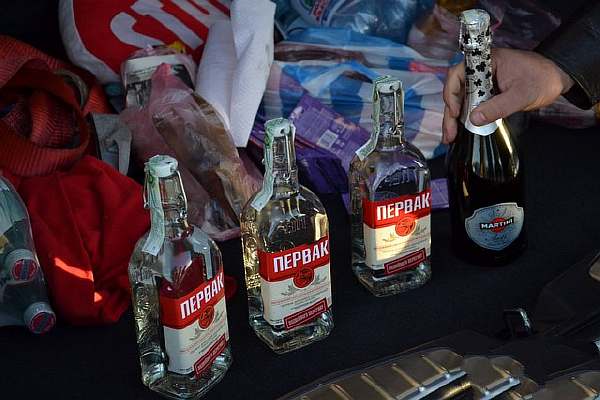
Alcohol trade
Yes, for some products, businessmen may be able to push through false medical research. But it is no longer possible to deny the harm of alcohol. Too many facts and statistics. The danger of alcoholic beverages for the social component of Russian society is especially obvious. Although the harm to health is also significant.
There are also doctors who claim that for some diseases it is useful to drink a little red wine. For example, for heart disease. This is actually a misconception. Grape juice from black (red) grapes is enough.
However, you should not expect that restrictions on the purchase of alcohol will increase sharply. Alcohol lobbyists have considerable power, and they will be able to promote their interests for a long time to the detriment of society as a whole.

However, it is possible that soon, in addition to restrictions on the sale of alcohol, the conscious refusal of the younger generation from bad habits will play a significant positive role.
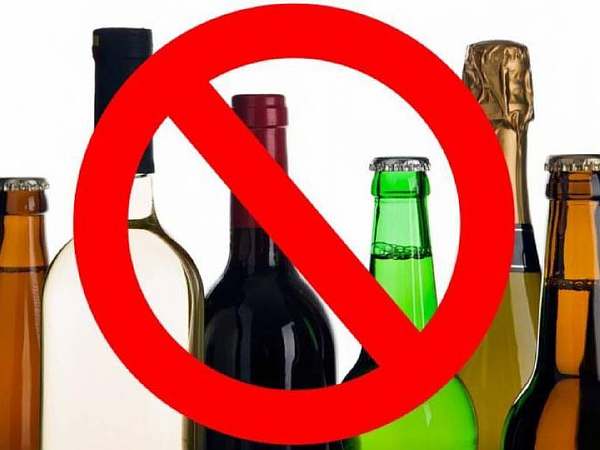
Trade ban
In conclusion, it is worth noting that in 2020, according to Russian law, alcohol is allowed to be purchased or sold only from a certain age. As it should be. Current restrictions on the sale and purchase of alcohol are unlikely to change much. If there are changes, they will be insignificant, because the health, as well as the capacity of the country’s population, depends on these norms of the law.
Is it possible to buy alcohol on your coming of age day?
To prevent this, Federal Law No. 253 was passed, prohibiting the sale of alcohol to minors. It allows you to stop the spread of alcoholic beverages among teenagers. The law, which came into force in 2011, has already borne fruit. Since its adoption, there has been a significant decrease in alcoholism among young people.
Regardless of holidays, the sale of alcohol ends at 23:00 and resumes at 8:00 am. Some regions of Russia have increased the period of the ban on sales. For example, you can buy alcohol in Arkhangelsk no earlier than 10:00. In the Komi Republic, no one will be able to purchase a bottle of strong drink after 10 p.m. But in Chechnya you can only buy alcohol in the morning, from 8:00 to 10:00.
Do emancipated teenagers have the right to buy alcohol?
It is impossible to determine the exact age of a citizen “by eye”. Therefore, when selling alcohol to young people and girls, sellers exercise their right to demand from the buyer a document confirming the fact that they are of age.
This right is established in paragraph 2 of Art. 16 No. 171-FZ: “...if the person directly dispensing alcoholic products (seller) has doubts about whether the buyer has reached the age of majority, the seller has the right to demand from this buyer a document allowing to establish the age of this buyer. The list of relevant documents is established by the federal executive body authorized by the Government of the Russian Federation.”
That is, a seller selling alcoholic beverages not only has the right, but also the obligation to check the age of majority of any buyer whose age he questions. To do this, the buyer must present a document certifying his age.
The list of such documents was approved by Order of the Ministry of Industry and Trade of Russia dated May 31, 2017 No. 1728. These include:
- Internal passport of a citizen of the Russian Federation.
- Foreign passport of a citizen of the Russian Federation.
- Temporary identity card of a citizen of the Russian Federation.
- Seaman's identity card.
- Diplomatic passport of a citizen of the Russian Federation.
- Service passport of a citizen of the Russian Federation.
- Identification card of a military personnel or military ID of a citizen of the Russian Federation.
- A foreign document of a foreign citizen or another identification document recognized as such by the Russian Federation.
- Residence permit for a stateless person in the Russian Federation.
- Permit for temporary residence of a stateless person in the Russian Federation.
- Refugee certificate.
- Certificate of provision of temporary asylum on the territory of the Russian Federation.
- Driver's license.
- Personalized spectator card.
As can be seen from the list, there are no certificates, court decisions or guardianship authorities recognizing a citizen as legally competent in this list. Thus, an officially emancipated teenager is recognized as fully capable, but is not an adult.
Adulthood and legal capacity are different concepts. According to the Constitution, the age of majority in Russia is 18 years.
Permission to sell alcoholic beverages applies only to adult citizens. Therefore, in accordance with paragraph 2 of Art. 16 No. 171-FZ, even if a teenager is officially recognized as fully capable, conducts entrepreneurial activity, is married, he still cannot buy alcohol until he turns 18, since de jure he is still a minor.
Therefore, the question of how old people can sell alcohol in Russia in 2020 can be answered unequivocally - exclusively from 18 years of age.
Restrictions from Russian law
Official permission to drink alcohol appears with the age of majority - at 18 years old. The child turns into a full-fledged citizen, obliged to obey the law and understand the consequences for violating it.
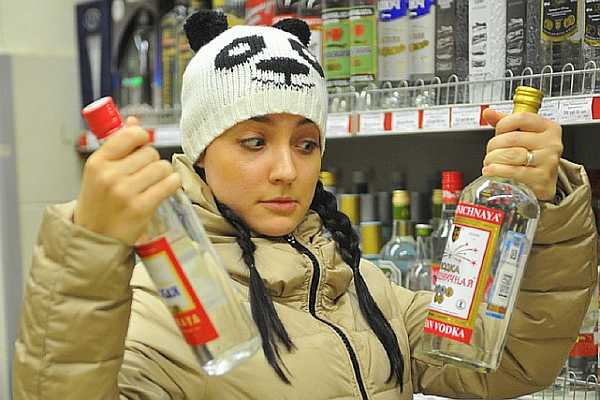
In most countries of the world, as well as in the Russian Federation, a teenager receives the right to buy alcohol in stores, as well as order alcohol in bars and restaurants, from the age of 18. At the same time, purchasing and drinking alcohol in Russia is strictly prohibited in the following places:
- in educational institutions and institutions for children and adolescents;
- in healthcare institutions;
- in markets;
- in transport.
Violation of the law on the purchase of alcoholic beverages by a minor is strictly punishable by law. The person who sells them faces a fine. Parents or any adult who buys alcohol for a child or teenager can also be punished. You can prove your age by presenting to the seller a passport, license or other official document that contains your date of birth.
Laws in other countries around the world may differ. For example, in Italy, Austria, Denmark and Georgia, you can buy alcoholic beverages as early as 16 years old. Other countries do not impose restrictions on the purchase of alcohol at all, or there is a ban only on strong alcohol. In most Muslim countries, alcohol is prohibited to everyone except tourists.
The influence of alcohol on teenagers
Teenagers are always interested in everything forbidden, first of all, alcohol. To prevent the first experience from becoming disastrous, parents should definitely have a conversation about the effects of alcohol on the body.
In the Russian Federation, the purchase and consumption of strong alcoholic beverages is allowed only to citizens over 21 years of age. Legally, selling alcoholic beverages to persons under 18 years of age may result in administrative penalties. In this case, not only the seller, but also the persons in charge of the outlet may be held liable. If such situations are repeated periodically, the collection of fines and confiscation of all products is followed by criminal liability.
What drinks are considered alcoholic?
Russian laws regarding the sale of alcoholic beverages are such that beer and some other low-alcohol drinks have the right to be purchased by a person who has reached the age of majority.
This concept means the age of eighteen years. But you can only buy vodka if you are 21 years old.
And not only vodka, but also other alcoholic drinks with a high content of ethyl alcohol.
Alcohol products are divided into the following types:
- alcoholic drinks (including vodka, cognac),
- wine, fruit wine, liqueur wine, sparkling wine (champagne),
- wine drinks,
- beer and beer-based drinks, cider, mead.
If we are talking about banning the sale of alcohol to children, then they cannot be sold any alcohol. This standard applies to the following drinks:
- vodka and cognac,
- martinis, liqueurs and wine,
- beer, including the notorious so-called “non-alcoholic” beer.
Look at the jar. Is the ethanol percentage higher than 0.5? This means that there is no question of any “non-alcoholicity” and the seller will be guided by the aforementioned law 171-FZ.
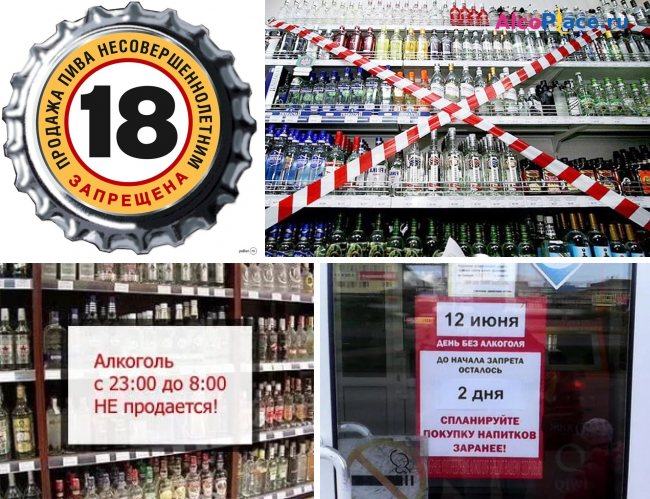
If the alcohol content of a drink is less than 0.5%, the drink will be sold to any buyer, regardless of age, since this product is not alcoholic.
Despite the prohibitions, alcoholic drinks are sold via the Internet - just type the corresponding query in a search engine. At any time of the day, which is also prohibited. True, they usually still ask for a passport, because this point will be easier to prove than, say, the status of a seller.
Needless to say, many companies manage to circumvent sanctions. The reason is gaps in legislation and the lack of extensive judicial practice.
Requirements for premises where alcohol is sold:
- Sales can be carried out exclusively in a stationary premises;
- Each store has a separate entrance/exit and storage area.
- The area in the city should be from 50 sq.m., and in the village at least 25 sq.m.;
- Regular stores can sell drinks that contain no more than 12 degrees of strength.
- The premises may be owned or leased for a long-term period.
https://youtube.com/watch?v=JMLiFZePm58
According to the law, the following products are considered alcohol:
- beer, cider and beer drinks;
- wine, champagne and wine-infused drinks;
- drinks containing 0.5% ethyl alcohol.
Alcoholic drinks are divided into three strength categories:
- low alcohol (beer and cider);
- medium alcohol (wine and mead);
- strong (vodka and cognac).
The composition of such beer contains an ethyl alcohol level of at least 0.5%, which, according to Federal Law No. 171, defines the drink as alcoholic.
But if the composition of the drink states that the alcohol content is less than 0.5%, then you can safely purchase it, regardless of age and time of day, because this will be the purchase of non-alcoholic products.
Without checking how old the buyer of alcohol is, the seller may be punished if he sells alcohol to a minor.
According to the Code of Administrative Offenses of the Russian Federation, in Article 14.16, the offender faces a monetary penalty in the form of a fine:
- the offender is an individual and committed the crime for the first time: 3000-4000 rubles;
- the official is imposed a fine in the amount of 10,000-20,000 rubles;
- a legal entity will receive a monetary penalty of 80,000-100,000 rubles.
Also, the legislation of the Russian Federation provides for sanctions for those who take part in the drugging of minors in accordance with the Code of Administrative Offenses of the Russian Federation, Art. 6.10:
- unauthorized persons receive a fine of 1500-3000 rubles;
- parents or guardians of a minor will be fined 5,000 rubles.
The last modification of the law on the sale of alcohol occurred in 2013. Then Federal Law No. 171 was slightly edited, which contains information on the age limit for persons wishing to purchase alcohol.
According to the article, the sale of drinks containing ethanol is allowed only if the person has reached the age of majority.
Even if a person reaches adulthood, he may not immediately go to the store to celebrate this event with alcohol. In our country, you are allowed to buy alcohol only the day after your 18th birthday. Therefore, you won’t be able to buy alcohol on your birthday.
Law in the fight against alcoholism
Article 21 of the Russian Civil Code states that adulthood occurs at 18 years of age.
From the moment a person reaches his 18th birthday, he is considered fully capable and responsible for the consequences of his decisions. According to the requirements of Federal Law No. 218 of 2011, employees and management of alcohol retail outlets are obliged (have every right) to demand from customers a document confirming the age of majority when dispensing alcoholic beverages.
At the initiative of the Ministry of Health and the Chief Sanitary Doctor of Russia, Resolution No. 16 was issued, classifying beer as alcoholic beverages in December 2000.
The same Federal Law No. 171-FZ provides for restricting the sale of alcoholic beverages at night in order to improve the health of Russians and increase safety on city streets. A complete ban on the sale of alcohol from 11 pm to 8 am is mandatory in all regions.
The State Duma has made a number of additions to the law on state regulation of the production and sale of alcohol-containing products. Russian parliamentarians adopted changes to Article 2, clarifying the categories of regulated alcohol products, in June 2020.
Alcoholic drinks: vodka, cognac, berry and fruit wine, liqueurs, champagnes, beer, cider, mead, poire.
Non-alcoholic beer is not considered alcoholic beverages due to its extremely low alcohol content (less than 0.5%).
According to the legislation, persons under 18 years of age cannot buy anything other than non-alcoholic beer, since vodka contains 38-56% alcohol, cognac - at least 40%, wine - 8.5-16.5%, liqueurs - 15 -22%, wine drink - 1.5-22%, cider and poiret - no more than 6%, mead - 1.5-6%, beer and beer-based drinks - 4-14%.
Drinks are also distinguished by the amount of ethyl alcohol.
- Low alcohol drinks containing less than 15% ethyl alcohol.
- Medium-alcohol drinks with alcohol content in the range of 15-30%.
- Strong alcohol.
The latter includes vodka, cognac, whiskey and all alcohol-containing drinks stronger than 30%.
Legal restrictions in the US and other countries
The only legal minimum age for drinking alcohol in the United States is 21 years old.
Sale of alcoholic beverages is prohibited after 02:00 at night and on weekends, usually Sundays. But each state has different conditions for selling. As in our country, in supermarkets that are open on weekends, access to display cases with alcoholic beverages is closed at night.
In a large number of states, the majority of stores are allowed to sell only beer. Wine, liqueurs and spirits may only be purchased at designated retail outlets. There are states in the southern part of the continent that have prohibition laws. On their territory, the sale of alcohol, which has a higher strength than that established by law, is limited. But as an exception, the sale of drinks with a strength exceeding the norm is permitted in closed establishments.
In Iceland and Japan, the consumer age for purchasing alcohol is 20 years. There is no restriction on use. In England, the legal age to buy booze is 18. However, it is completely prohibited to drink alcohol under the age of 5 years.
In Germany, Austria, Belgium and Denmark, low-alcohol drinks such as beer and wine are allowed to be purchased from the age of 16, but purchasing and drinking high-strength drinks is prohibited.
In Cyprus and Malta, the minimum age for purchasing alcohol starts at 17 years. In Canada, it is legal to purchase alcohol from the age of 18-19, depending on the state in which the point of sale is located. In various countries of Africa, Central Asia, as well as in Nepal and Cuba, the required age for purchase is 16 years.
Interestingly, in the Faroe Islands you can purchase alcohol from the age of 14. This age is considered here to be the onset of adulthood and full legal capacity. But the highest age restrictions are found in India. Here, people who purchased and drank vodka or other strong drinks must be 25 years old.
In various Muslim states, alcohol is prohibited from being purchased and consumed either by all residents or only by those who consider themselves Muslims.
Restrictions
Regardless of the strength of an alcoholic drink, anyone can harm a young person’s body. Teenagers lose control of their own behavior. When intoxicated, young people can harm others and even themselves. This is what led legislators to introduce restrictions on the sale of alcohol to young people.
Age limit
Not all countries have restrictions prohibiting the sale of alcohol to young people. The age limit in the Russian Federation is 18 years. But new clauses to the laws allow retail establishments not to sell alcoholic beverages to customers under 21 years of age.
Temporary
Federal Law No. 171 provides for temporary restrictions on the sale of alcohol-containing products. Dispensing alcohol is prohibited between 11:00 p.m. and 8:00 a.m. but regional authorities can make additions to the bans. For example, a temporary restriction in Moscow is the cessation of sales from 22.00 to 8.00. And on weekends in Moscow there is a complete ban on sales.
Calendar
On the eve of holidays or special events, a ban on the sale of alcohol may be introduced. This is done to minimize the risk of crime, which automatically reduces the risk of sale to teenagers.
The list of holidays during which alcoholic beverages are not sold includes:
- Children Protection Day,
- Knowledge,
- Last Call, etc.
The list also includes last calls and a number of regional holidays.
Territorial
The sale of alcohol is completely prohibited if the point of sale is located near:
- places where there are large numbers of citizens (at airports, train stations, etc.),
- children's institutions,
- dormitories,
- railways,
- sports or military facilities,
- medical institutions.
At what age can you sell and drink alcohol?
In addition, there are also hours when you can purchase strong alcohol at retail. There are different time frames for different regions of Russia. These restrictions do not apply to restaurants and cafes, but do apply to retail and takeaway businesses.
In Russia, some officials believe that this temporary ban will help reduce the level of alcohol addiction. After all, the hours for purchasing alcohol fall late after work, when people, not finding other entertainment for themselves, having drunk a glass or two, begin to look for “supplements.” After all, the seemingly uplifting mood is only the body’s first reaction to alcohol. Therefore, if there is nowhere to buy it, then they will drink less.
When and what can you drink?
Let’s ask ourselves: at what age can you legally drink alcohol in Russia? At what age are wine, vodka, beer or whiskey sold to young people?
Drinking of alcohol by citizens under eighteen years of age is included in a separate category. Children who decide to “grow up” in this way are a separate article (20.22 Code of Administrative Offenses). It provides for a fine of up to 2 thousand rubles. True, it is not the violators themselves who will have to pay, but their mothers and fathers (or guardians).
If an adult citizen is found in the company of drinking teenagers, he will be considered guilty of involving them in drinking alcohol, which is punishable by law.
Unfortunately, you can’t keep track of everyone and very often, teenagers drink alcohol secretly from their parents. There can be many reasons for this, from psychological disorder to depression or the teenager’s ordinary desire to experience something new.
At what age can you start drinking alcohol?
Many experts recommend not starting to drink at all. Judging by statistics, alcohol takes up a significant part of the lives of many people. But how can you not start drinking if it’s customary to “wash” every event, and the number of people around you who drink is quite significant.
It is recommended to correctly calculate the dosage and develop a sense of proportion within yourself. Usually, this is the line between being intoxicated and sober. However, even older people are susceptible to the influence of alcoholism, so it is not reasonable to put everyone under the same standard.
It is necessary that enough time has passed not only since the final stage of the formation of the organism, but also the direct maturation of the person himself, the development of his personality. Only then can he sensibly assess the situation and control his actions so as not to become a hostage to the “green serpent.”
In conclusion, we can add that it is necessary to monitor teenagers and children.
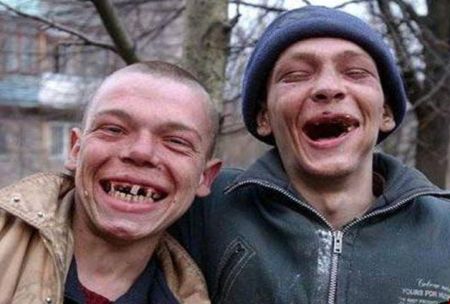
Legal side of the issue
From the point of view of the law (clause 1 of Article 21 of the Civil Code of the Russian Federation), citizens of the Russian Federation become adults, receiving new rights and obligations, after reaching the age of 18.
Coming of age opens up many opportunities for young people, including the right to buy alcoholic beverages (provided for by Federal Law No. 171). That is, Russians can only purchase and drink alcohol after 18 years of age. However, some (often even parents of minors) believe that this restriction does not apply to beer and children can drink a glass of foamy drink. In fact, if you carefully study the law, it will become clear: beer and beer drinks, as well as stronger alcohol, are prohibited for persons under 18 years of age. The exception is legally emancipated teenagers - recognized as adults under the age of 18.
But not all teenagers are ready to wait until they reach adulthood and use various tricks to buy alcohol before the legal age. In order to limit children and adolescents' access to alcohol, Federal Law No. 171 was adopted back in 1995, providing for liability for the sale of alcohol to minors. By the way, if the law is violated, a fine will have to be paid not only to the seller who sold the alcohol, but also to the owner of the outlet and the store itself - as a legal entity.
As for parents whose children drink alcohol before the permitted period, they are also subject to administrative punishment in the form of a monetary penalty. In particular, if a child under 16 years of age was caught drinking alcohol in a public place, his parents, according to Article 20.22 of the Code of Administrative Responsibility, will have to pay a fine of 1.5 to 2 thousand rubles. In addition, the same Code (but already Article 6.10) provides for punishment for involving a minor in drinking alcohol. That is, if it turns out that the parents not only turned a blind eye, but also contributed to their children’s drunkenness, the amount of the penalty can reach 5 thousand rubles.
Recently, at the state level there has been serious talk about the need to tighten Federal Law 171 and raise the age for legal purchase of alcohol to 21 years. If the amendments to the law are adopted, then, from a legal point of view, it will be possible to drink alcohol in Russia only after the age of 21.
Is it possible to sell non-alcoholic beer to minors?
In addition to all the social principles that children should not drink and parents should ensure that their son or daughter does not accidentally try alcohol, there is also a psychological aspect. By the way, this factor plays a fairly large role, both in alcohol education and in shaping the child’s outlook on life.
Having considered the question of whether it is allowed to sell beer to a child, we can draw some conclusions. Yes, according to the law, the sale of such products to a child is not prohibited, but any person should understand that alcohol in any quantity will not bring anything good to the teenage body.
Physiological aspect
Many shopping centers require you to present documents confirming your age of majority.
We cannot ignore the issue of alcohol consumption from a physiological point of view. The influence of alcohol on personality development is clearly detrimental. It is for this reason that in the legislative framework the ban on the sale of alcohol to minors will always have a fairly high level of relevance.
The problem is that when alcohol gets into the blood, the mucous membrane of red blood cells is destroyed, which gradually begin to stick together, forming microscopic blood clots. For vessels located in the extremities, this would seem to play no role.
However, in the human brain there are billions of microscopic vessels, the throughput of which corresponds to actually 1-2 the diameter of a red blood cell. When red blood cells clump together, the microscopic vessels can no longer supply enough blood to the human brain. Thus, instead of higher nervous activity, the alcoholic descends to the state of an animal.
As alcohol abuse occurs, physiological changes and mental disturbances also occur. In fact, an individual turns from a human into a monkey, and over time even begins to behave in ways that animals do not allow themselves. Those. in matters of mental activity the individual becomes lower than the animal.
After blood stops flowing to the brain in the required quantity, fragments of nerve tissue die. When this happens, the person experiences a headache or what is called a hangover. This process is accompanied by a rush of a large amount of fluid to the head and a feeling of dehydration.
This is how the process of washing away the dead remains of nerve tissue from the head occurs. After this flushing, all fluid is eliminated from the body naturally, and the individual literally urinates with his own brain.
It should also be noted that alcohol is the strongest tool for suppressing the will of people. When our will is suppressed, we are unable to adjust our activities to the circumstances of the current situation. This means that we simply serve automatisms and habits instead of developing some new information modules. When using any psychotropic drugs, people's suggestibility increases.
The psyche of a non-drinking and non-smoking person cannot in any way be encoded under the influence of modern media and the immediate environment. Those. sober people cannot be manipulated at all.
If we consider the issue of alcoholism, as a widespread phenomenon in the world, we can easily conclude that through the distribution of alcoholic beverages, as well as other psychotropic drugs, there is a purposeful oppression of the planet's population so that we can be more easily manipulated and programmed mental activity or keep it low for something.
Therefore, in order to eradicate the phenomenon of teenage alcoholism as a whole, you need to look at the root of the problem. It is necessary to determine the purpose for which such a phenomenon is introduced in society. Naturally, nothing happens by itself. And only after this, at the national level, launch processes that contribute to the achievement of goals favorable to the entire world community.
Age restrictions for the sale of alcohol in Moscow
Alcohol has the following effects on the body:
- toxic effects on brain cells;
- changes in brain functions;
- empowerment;
- slowing down the functioning of the nervous system;
- increased urine volume;
- liver destruction.
According to Rospotrebnadzor, alcohol causes a feeling of euphoria, thereby masking excitement and anxiety. This is what makes it attractive to the body. But this remedy does not justify the consequences. Vision and sexual activity deteriorate. When alcohol addiction develops, a person cannot live a normal life. Damage to the liver leads to various liver diseases. Even if a person refuses to drink alcohol, the body will not return to normal soon.
When a teenager finds out that alcohol, including vodka, is sold from the age of 18, he wants to break this ban. However, drinking alcohol is especially dangerous for him. Since his body is still developing, alcohol interferes with this process. Children, having tried a new drink, cannot stop, as they experience emotions that they have not encountered before.
The bar is somewhat different from the shops. The fact is that these establishments are not subject to time restrictions. According to Article 14.1, minors cannot be in drinking establishments, even in the presence of adults. In addition, the legislation does not set exact age limits; this right is reserved by the bar itself, but not lower than 18 years. This was done because a child could get hurt in such institutions.
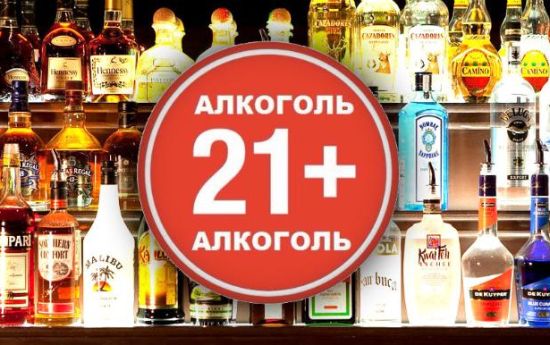
According to the Constitution, the official age of majority is 18 years. However, the Russian Civil Code also has the concept of “emancipation of adolescents,” which means full legal capacity.
Nuances of emancipation
In certain situations, an adult citizen is recognized as fully capable. This is what the concept of “emancipation” means. For a number of important reasons, such a decision can be officially made by the guardianship and guardianship authorities in agreement with the parents of the minor or his representatives. If the young man has no close relatives, then such a decision is made by the court.
- From the age of 16, if you have to officially work under an employment contract or contract (with the written consent of the father and mother). This is also possible when a teenager begins to engage in IP. The right to emancipation is given by Article 27 of the Civil Code of Russia.
- If a person marries at the age of 14 for good reasons (Article 21 of the Civil Code of the Russian Federation).
But there is a nuance - if the marriage is officially declared invalid, then the court can remove the right to emancipation, and the citizen again receives the status of an incompetent person until the age of eighteen.
When is it recommended to start drinking?
How much alcoholic beverages and at what age you can drink it, everyone decides for themselves. This issue must be approached responsibly, understanding all the potential harm to the body that such drinks can cause.
To make the right decision, you need to take into account that alcohol can slow down the development of brain activity. Therefore, if you start drinking alcohol too early, your IQ scores in later life will be low.
Psychologist with many years of experience, Arik Sigman from the Royal Medical Society, says that even at the age of 18 you should not even try alcohol in small doses. The reason for this statement was the results of a study that proved that brain tissue is formed until later in life. Therefore, in order not to harm your health, it is recommended to stop drinking alcohol until you are at least 24 years old.
How old is alcohol for sale in Russia and other countries?
There are times in life when sellers refuse to sell alcohol even if you have a passport. Such examples are rare, but they also occur. For example, when you started arguing with the seller and this dispute smoothly turned into a minor conflict. To teach you a lesson, the seller does not agree to sell you the product. In this case, you can safely refer to Article 426, paragraph 3 of the Civil Code of the Russian Federation, which clearly states: “the refusal of a commercial organization to conclude a public contract if it is possible to provide the consumer with the corresponding goods, services, or perform the corresponding work for him is not allowed.” After this, any store will not interfere with your purchase, because the outlet may be fined for violating this article.
There are very popular examples in Russia where fathers with their passports send their minor children to buy them cigarettes or alcohol. We strongly recommend that you do not do this. They still won’t sell alcohol to minors with someone else’s passport (even their parents’). But such parents may be slapped with penalties.





